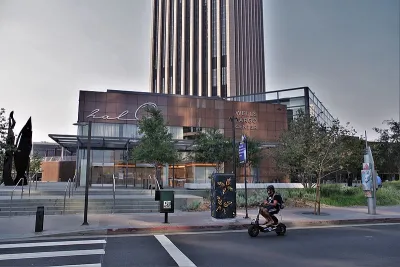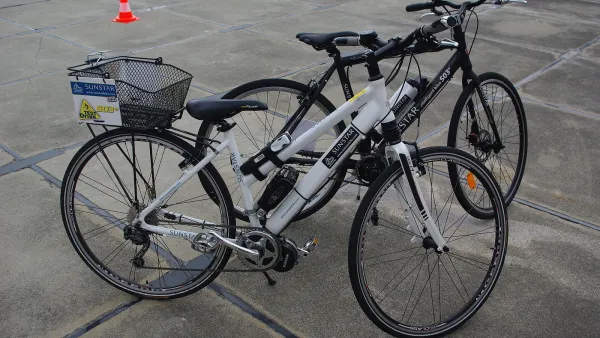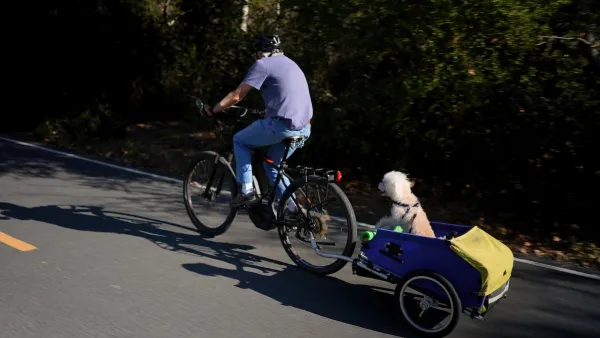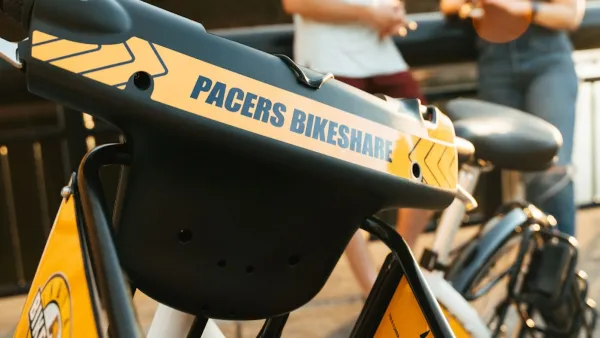As more people buy e-bikes for regular commuting and transportation, cycling advocates are calling for cities to beef up investment in safe infrastructure.

In the United Kingdom, "e-bike sales outstripped electric car sales in 2020," with one e-bike selling every three minutes. Yet, writes Lloyd Alter, "guess which mode of transport gets all the attention and the infrastructure investment, with the government spending another 20 million pounds ($27.75 million) on charging points that they often stick in the middle of sidewalks?"
Mark Sutton, editor of Cycling Industry News, cites a "lack of safe infrastructure" as "the biggest obstacle to growing cycling levels," calling for U.K. cities to step up investment in infrastructure and safety for cyclists. "For a true end-to-end journey to become viable by bike things like cycle parking must be factored in, employers will have to begin to cater and even incentivise non-car travel (property with showers and cycle-friendly access are now worth more) and residential areas will have to be linked to arteries. People won’t take that first step if the view outside their door is terrifying."
The bike boom is also gaining support from an unlikely ally: real estate developers. Alter describes Sutton's theory: "Developers want to build more, but they know that there isn't room for a lot more cars, which 'spill out of our own individual spaces and on to public land, where in theory they have no real right to be.'"
In the U.S., e-bike sales also jumped by 145% over 2019, while electric car sales dropped slightly, but the federal government's infrastructure plan only allocates $20 billion for road safety programs that benefit cyclists and pedestrians, compared with $174 billion for vehicle electrification. Critics worry that "funneling billions into vehicle electrification will continue to prop up our car-centric transportation system and enrich car companies instead of challenging car dominance with investments that reduce the need for cars." As Alter writes, "we shouldn't lose sight of the fact that there is a serious e-bike boom happening right now, or that we can't keep expanding our cities horizontally and vertically without reducing the proportion of people who drive cars, electric or gas—there simply isn't enough room."
FULL STORY: The E-Bike Spike Continues With 1 Selling Every 3 Minutes

Analysis: Cybertruck Fatality Rate Far Exceeds That of Ford Pinto
The Tesla Cybertruck was recalled seven times last year.

National Parks Layoffs Will Cause Communities to Lose Billions
Thousands of essential park workers were laid off this week, just before the busy spring break season.

Retro-silient?: America’s First “Eco-burb,” The Woodlands Turns 50
A master-planned community north of Houston offers lessons on green infrastructure and resilient design, but falls short of its founder’s lofty affordability and walkability goals.

Test News Post 1
This is a summary

Analysis: Cybertruck Fatality Rate Far Exceeds That of Ford Pinto
The Tesla Cybertruck was recalled seven times last year.

Test News Headline 46
Test for the image on the front page.
Urban Design for Planners 1: Software Tools
This six-course series explores essential urban design concepts using open source software and equips planners with the tools they need to participate fully in the urban design process.
Planning for Universal Design
Learn the tools for implementing Universal Design in planning regulations.
EMC Planning Group, Inc.
Planetizen
Planetizen
Mpact (formerly Rail~Volution)
Great Falls Development Authority, Inc.
HUDs Office of Policy Development and Research
NYU Wagner Graduate School of Public Service




























